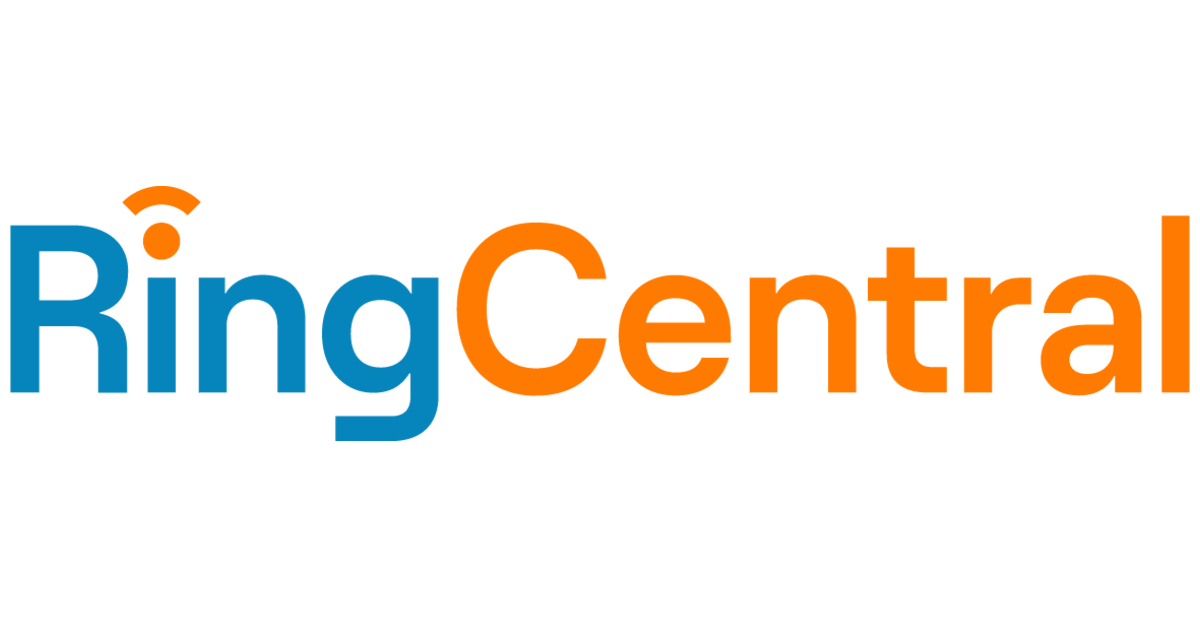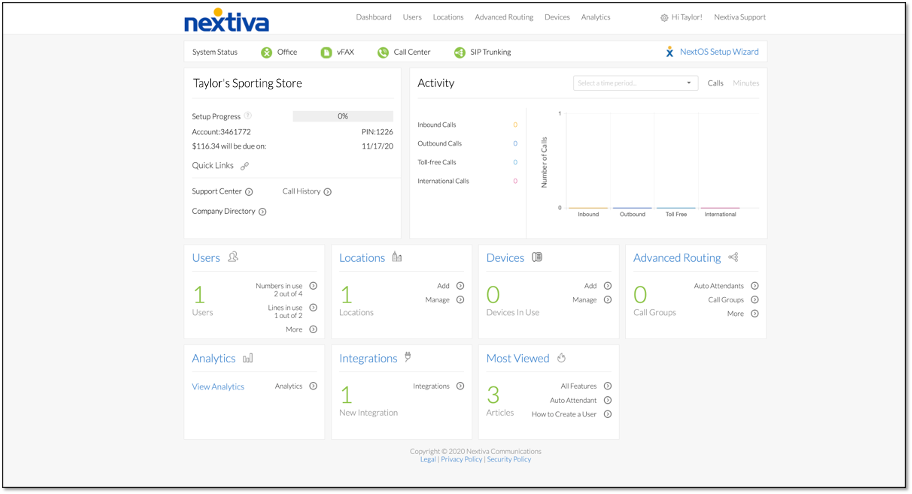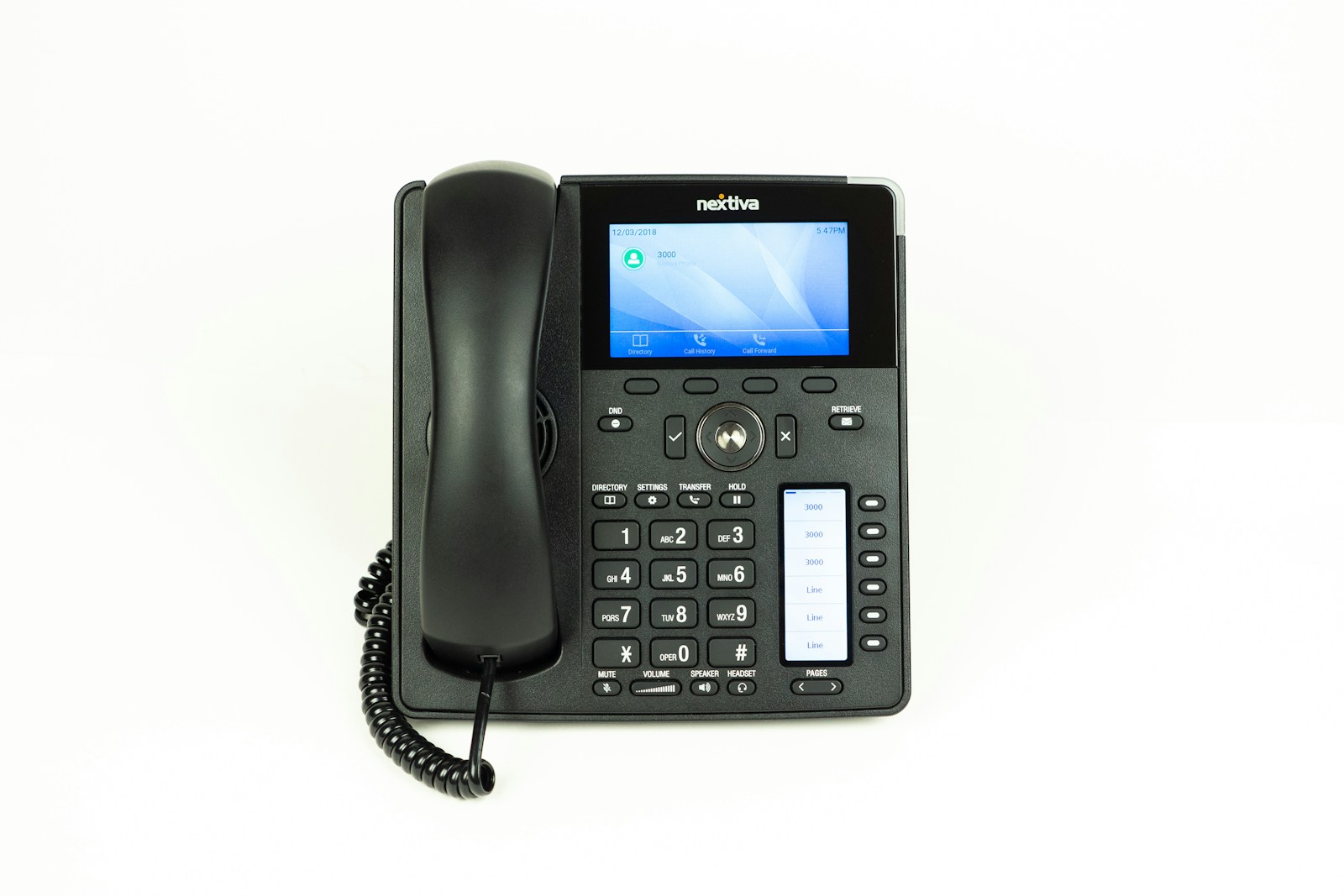Business VoIP services have revolutionized communication for companies by providing advanced features and significant cost savings compared to traditional phone lines. Leading providers such as RingCentral, 8×8, and Intermedia Unite offer comprehensive solutions suitable for businesses of all sizes. VoIP technology enables voice calls to be made over internet connections, allowing for flexible options like mobile apps and desktop softphone applications.
Many of these services also include video conferencing, team messaging, and other collaboration tools. Companies can choose between cloud-based systems or on-premises deployments, depending on their specific needs and IT resources.

Top Business VoIP Providers in 2025
Here’s a table of the top rated VoIP providers for 2025:
| Rank | Provider | Best for | Key Features | Pricing |
|---|---|---|---|---|
| 1 | RingCentral | Reliability | Comprehensive features, variety of plans, strong reputation | $$$ |
| 2 | Nextiva | Affordability | Good balance of features and price, excellent customer support | $$ |
| 3 | 8×8 | Scalability | Reliable and scalable solution, unified communications | $$$ |
| 4 | Vonage | Small businesses | Variety of plans and add-ons, easy to use | $$ |
| 5 | Dialpad | AI features | Modern platform, AI-powered features, strong integrations | $$$ |
Choosing the Right VoIP Provider
Many factors can affect your decision when choosing a VoIP provider. Consider your business size, budget, and specific needs. Think about the features that are important to you. These can include call quality, reliability, and customer support.
Top VoIP Providers
Here are some of the top business VoIP providers in 2025:
- RingCentral: This provider is known for its reliability and comprehensive features. It offers a variety of plans to fit different business sizes.
- Nextiva: Nextiva offers a good balance of features and affordability. It is a good choice for small and medium-sized businesses.
- Vonage: Vonage is a well-established VoIP provider with a strong reputation. It offers a variety of plans and add-on features.
- 8×8: 8×8 provides a reliable and scalable VoIP solution. It is a good choice for businesses that are growing quickly.
- Dialpad: Dialpad offers a modern VoIP platform with a focus on AI-powered features. It is a good choice for businesses that want the latest technology.

Key Features to Consider
When comparing VoIP providers, consider these key features:
- Call quality: Look for a provider that offers clear and reliable call quality.
- Features: Consider the features that are important to your business, such as call forwarding, voicemail, and video conferencing.
- Pricing: Compare pricing plans and choose one that fits your budget.
- Customer support: Choose a provider with good customer support in case you need help.
- Integrations: Consider whether the provider integrates with other business tools you use.
Comparison Table
| Provider | Best for | Key Features | Pricing |
|---|---|---|---|
| RingCentral | Reliability | Comprehensive features, variety of plans | $$$ |
| Nextiva | Affordability | Good balance of features and price | $$ |
| Vonage | Reputation | Variety of plans and add-ons | $$ |
| 8×8 | Scalability | Reliable and scalable solution | $$$ |
| Dialpad | AI features | Modern platform, AI-powered features | $$$ |
VoIP for Remote Teams
VoIP is a good option for businesses with remote teams. It allows employees to make and receive calls from anywhere with an internet connection. This can help improve collaboration and productivity. Some VoIP providers offer features specifically designed for remote teams. These can include mobile apps and integrations with collaboration tools.
Key Takeaways
- VoIP services provide advanced communication features at lower costs than traditional phone systems
- Leading providers offer scalable solutions for small businesses up to large enterprises
- Cloud-based VoIP enables flexible options like mobile and desktop apps for remote work
Top Business VoIP Service
Choosing the right business VoIP provider can significantly impact your company’s communication and efficiency. Consider factors like your business size, budget, and essential features like call quality, reliability, and customer support. Top providers in 2025 include RingCentral, Nextiva, Vonage, 8×8, and Dialpad, each offering unique strengths. Evaluate key features, compare pricing, and explore options for remote team integration to find the perfect VoIP solution for your business needs.
Intermedia Unite
Intermedia Unite stands out as a comprehensive VoIP solution. It combines voice, video, chat, and file syncing in one package. The service offers many standard VoIP features that businesses need. It integrates well with other software tools.
Intermedia Unite now works with Chrome browsers. This expands its accessibility. Users must download a mobile app to import contacts. The service has some limits on call monitoring. Its new Chrome web app doesn’t support Microsoft Edge.
Top Choice for High-Volume Enterprise Calling
RingCentral MVP
RingCentral MVP stands out for large-scale business communication needs. It offers advanced video conferencing with AI-powered transcription and call analysis. The platform includes robust call queues and ring groups for efficient call management.
RingCentral’s extensive app marketplace allows businesses to customize their communication setup. Conference calling features support large-scale meetings. The system handles high call volumes effectively, making it suitable for enterprise-level call centers.
While report customization options are somewhat limited, RingCentral MVP’s collaboration tools enhance team productivity. The initial setup process can be time-consuming, but the resulting system is comprehensive and scalable.
Top Unified Messaging for Small Companies
8×8 All-in-One Communication Platform
8×8’s unified messaging system offers a robust set of features for small businesses. The base package includes video conferencing and improved mobile video capabilities. Setting up mobile and desktop clients is straightforward.
A new Frontdesk feature caters to receptionists’ needs. However, some productivity tools found in other products are missing. Certain user settings require bulk editing. The analytics reports lack configurability.
8×8 provides unlimited calling and texting, making it suitable for companies with high communication needs. Its scalability allows businesses to grow without changing systems.
Top Choice for Integrated Communication Platform
Vonage Business Communications
Vonage Business Communications offers a robust set of tools for companies seeking unified communication solutions. The platform boasts an extensive feature list for both administrators and end-users. A standout addition is the AI-powered Virtual Receptionist, which enhances call handling efficiency.
Users benefit from well-designed mobile and desktop applications. These apps facilitate seamless video conferencing and team collaboration across devices. Vonage provides comprehensive training materials and self-help resources, enabling quick onboarding and troubleshooting.
While the system excels in many areas, it’s worth noting that contact import procedures involve multiple steps. Additionally, some advanced features come at extra cost, potentially increasing the overall expense for businesses requiring full functionality.
Top Choice for Softphone Users
Dialpad
Dialpad offers a robust desktop client that serves as a central hub for communications. Its AI-powered call transcription feature highlights key points from conversations. The platform recently added geographic call routing to improve call management.
Video conferencing is limited to 10 participants without an extra fee. Call quality metrics are not included in analytics reports. Dialpad’s softphone capabilities make it a strong option for businesses seeking flexible communication tools.
Top Choice for Microsoft 365 Users
Teams Phone Integration
Microsoft Teams Phone offers deep integration with Microsoft 365 suite. It provides detailed call quality metrics for system insight. Local calling plans have expanded, but monthly limits remain at 3,000 minutes. Some tasks still require PowerShell scripting.
Teams Phone stands out for its seamless connection to Microsoft’s ecosystem. Users can make calls directly from familiar interfaces. This integration streamlines workflows and boosts productivity.
Call quality tracking helps IT teams spot and fix issues quickly. The expanded local calling plans give businesses more flexibility. However, the 50-hour monthly cap may not suit high-volume users.
Top-Notch Call Analytics and Performance Tracking
Nextiva
Nextiva stands out for its robust call analytics and reporting features. The platform offers in-depth insights into agent performance and call quality. Users can access real-time call monitoring tools to ensure service excellence.
Nextiva’s AI-powered features enhance call analytics by providing automatic transcripts and sentiment analysis. This helps managers quickly identify areas for improvement. The system integrates seamlessly with popular calendar and contact applications.
Nextiva’s interface is sleek and user-friendly, making it easy to navigate complex data. However, some advanced features are only available in higher-tier plans. While contact syncing is available, it currently only works in one direction.
Best for Traditional Phone Systems
Ooma Office for Legacy Setups
Ooma Office offers a VoIP solution for businesses still using older phone hardware. It works with existing landline systems, saving money on new equipment. The service includes voicemail and a virtual receptionist.
Ooma’s meetings feature doesn’t need special software. Users can join calls easily. The system is simple to set up and use daily.
Call quality tracking relies on user feedback. This may not give the full picture of service performance.
Ooma lacks some modern productivity tools. Security options are basic, with just usernames and passwords for login.
Optimal Choice for Zoho Users
Zoho Voice
Zoho Voice stands out as a top pick for businesses already using Zoho’s suite of tools. It offers a user-friendly interface for managing calls and customers. The free tier includes analytics and reporting features, which can be valuable for small businesses. Zoho Voice integrates seamlessly with other Zoho services, creating a unified workflow. The platform provides strong customer support, ensuring users can get help when needed. Voicemail transcription is available, saving time for busy professionals.
What Is a VoIP Phone System?
VoIP phone systems use the internet to make calls. They turn voice into data packets and send them over IP networks. These systems connect to regular phone lines too. This lets users call anyone, even if they don’t have VoIP.
VoIP offers features like conference calls and call routing. It works like a digital version of old office phone setups. Many businesses choose VoIP for its flexibility and cost savings.
The technology behind VoIP is called Voice over Internet Protocol. It relies on Session Initiation Protocol (SIP) to set up calls. SIP manages the start, change, and end of voice sessions.
VoIP System Costs for Small Businesses
Small business VoIP systems typically operate on a subscription model. Prices vary based on user count, feature sets, and expected usage. Most providers offer tiered pricing plans to accommodate different business needs.
Entry-level plans start around $15 per user monthly, while advanced enterprise-grade options can reach $65 per user monthly. The average small business can expect to pay approximately $20 per user each month.
Many providers offer discounts for annual prepayment. Some key factors affecting pricing include:
- Number of users/extensions
- Feature set (basic vs. advanced)
- Call volume
- International calling needs
- Integration requirements
When comparing options, businesses should consider:
- Scalability
- Essential features
- Customer support
- Contract terms
- Setup and equipment costs
It’s wise to request quotes from multiple providers and compare their offerings. This helps ensure the best fit for a company’s specific needs and budget.
Benefits of VoIP Phone Systems
VoIP phone systems offer significant advantages over traditional setups. Cost savings top the list, with reduced hardware and maintenance expenses. Flexibility is another key benefit. Users can make calls from various devices, including smartphones and computers.
Call quality has improved dramatically. Modern VoIP systems provide crystal-clear audio, rivaling or surpassing landlines. Reliability is also a strong point. Cloud-based VoIP services boast high uptime rates, minimizing disruptions.
Feature-rich interfaces enhance user experience. Systems typically include voicemail-to-email, call forwarding, and auto-attendants. These tools boost productivity and streamline communication.
Mobility is a standout feature. Remote work becomes seamless with VoIP. Employees can access their business phone system from anywhere with an internet connection.
• Lower costs
• Improved flexibility
• High-quality calls
• Enhanced reliability
• Rich features
• Remote work support
Selecting the Right Business VoIP System
Choosing a business VoIP system requires careful consideration of several factors. Companies must assess their current and future communication needs to find the best fit. This process involves evaluating features, scalability, and user-friendliness.
Call management features are a key aspect to examine. Look for options like call forwarding, voicemail-to-email, and auto-attendants. These tools can streamline operations and improve customer interactions. It’s also wise to check if the system offers call recording and analytics, which can be valuable for training and quality assurance.
Customer support is another crucial element. The best VoIP providers offer 24/7 support through multiple channels. This ensures help is available when issues arise, minimizing downtime. Reading customer reviews can provide insights into the quality of support and overall user satisfaction.
Security should be a top priority. Strong VoIP systems include multi-factor authentication and encryption to protect sensitive data. Ask potential providers about their security measures and compliance with industry standards.
CRM integrations can significantly boost productivity. A VoIP system that connects with existing customer relationship management software allows for seamless data sharing and improved customer service. This integration can lead to more efficient call handling and better customer experiences.
Consider the following when evaluating VoIP options:
- Ease of setup and management
- Call quality and reliability
- Mobile app availability
- Video conferencing capabilities
- SMS and messaging features
- Number porting options
- Pricing structure and contract terms
It’s important to involve key stakeholders in the decision-making process. This includes IT staff, department heads, and end-users. Their input can help ensure the chosen system meets everyone’s needs and is user-friendly.
Before making a final decision, request demos or trials from top contenders. This hands-on experience can reveal how well the system fits with existing workflows and highlight any potential issues.
Remember that the cheapest option isn’t always the best value. Factor in long-term costs, including potential upgrades and additional features that may be needed as the business grows.
By carefully weighing these factors, companies can select a VoIP system that enhances communication, supports growth, and delivers a strong return on investment.
What Are Softphones?
Softphones are software applications that turn computers and mobile devices into virtual phone systems. These apps replicate and expand on traditional desk phone features, offering voice calls, video conferencing, and instant messaging capabilities. Softphones work through Voice over Internet Protocol (VoIP) technology, using internet connections instead of traditional phone lines.
Key features of softphones include:
- Call management (hold, transfer, mute)
- Voicemail
- Contact lists
- Call history
- Conference calling
- Screen sharing
Many softphones integrate with other business tools like customer relationship management (CRM) systems and help desk software. This integration enhances productivity by centralizing communication data and streamlining workflows.
Mobile softphone apps bring these features to smartphones and tablets. They allow employees to use their work phone system from anywhere with an internet connection. This mobility is especially valuable for remote workers and frequent travelers.
Softphones offer several advantages over physical desk phones:
- Cost savings on hardware
- Easy scalability for growing businesses
- Flexibility in work location
- Simplified system updates and maintenance
When choosing a softphone, businesses should consider:
- Compatibility with existing systems
- User interface and ease of use
- Security features
- Customer support options
- Pricing structure
Softphones have become increasingly popular as more companies adopt remote and hybrid work models. They provide a versatile solution for modern business communication needs, combining the functionality of traditional phone systems with the convenience of digital technology.
Is Your Network Ready for VoIP?
Network performance is crucial for successful VoIP implementation. VoIP calls require steady bandwidth and low latency to maintain quality. Insufficient network resources can lead to poor call quality, dropped connections, and frustrated users.
Many small businesses rely on wireless networks rather than wired Ethernet. This can make it harder to control and monitor VoIP traffic quality. Remote workers using home internet connections add another layer of complexity.
Cloud-based VoIP services offer benefits like easier management and more features at lower costs. However, they increase dependence on public internet infrastructure. Businesses have limited control over internet performance between their office and the VoIP provider’s data centers.
Internet speeds have improved significantly since VoIP’s early days. Still, it’s wise to assess your network’s readiness before implementing VoIP:
- Measure available bandwidth during peak usage hours
- Test network latency and jitter
- Evaluate Quality of Service (QoS) capabilities
- Consider upgrading to business-class internet service
- Provide guidance to remote workers on optimizing home networks
Editor Picks for VoIP-Ready Networks
- Dedicated internet connections with Service Level Agreements (SLAs)
- SD-WAN solutions to prioritize VoIP traffic
- Ethernet switches with PoE for IP phones
- Enterprise-grade Wi-Fi systems with QoS features
- Network monitoring tools to track VoIP performance
Selecting the right network infrastructure can make a big difference in VoIP call quality and reliability. Consult with IT professionals to assess your specific needs and implement solutions tailored to your business environment.
What Is UCaaS?
UCaaS, or Unified Communications as a Service, is a cloud-based system that combines various communication tools into one platform. This technology integrates voice calls, video meetings, messaging, and collaboration features.
UCaaS offers businesses a flexible way to manage their communications. It replaces traditional phone systems with internet-based solutions. This shift brings cost savings and improved efficiency.
Key features of UCaaS include:
- VoIP (Voice over Internet Protocol)
- Video conferencing
- Instant messaging
- File sharing
- Team collaboration tools
Many UCaaS providers offer integrations with other business software. For example, a UCaaS system can connect with Customer Relationship Management (CRM) tools. This allows employees to access customer data during calls.
UCaaS systems are scalable. Businesses can add or remove users as needed. This flexibility makes UCaaS suitable for companies of all sizes.
The benefits of UCaaS include:
- Reduced costs
- Improved productivity
- Enhanced customer service
- Remote work support
UCaaS continues to evolve. Providers are adding new features like AI-powered analytics and advanced security measures. These innovations aim to meet the changing needs of modern businesses.
When choosing a UCaaS provider, companies should consider:
- Reliability
- Security features
- Integration options
- Customer support
- Pricing structure
UCaaS adoption is growing rapidly. Many businesses are moving away from on-premises systems to cloud-based solutions. This trend is expected to continue as more organizations recognize the value of unified communications.
The Future of Business VoIP
Business VoIP continues to evolve rapidly. New technologies and trends are shaping the way companies communicate internally and with customers.
AI-powered features are becoming more common in VoIP systems. These include smart chatbots for customer service and AI-based call routing. AI also enhances reporting capabilities. Companies can now get detailed insights into call quality, volume, and app usage. This data helps businesses optimize their communication systems.
Network mobility is another key trend. Many VoIP providers are moving away from traditional desk phones. Instead, they’re focusing on mobile apps that work seamlessly across devices. Employees can now make and receive calls from their work number on any smartphone or tablet.
5G networks will have a big impact on VoIP. The increased speed and lower latency of 5G will improve call quality and reliability. It will also enable new features like high-quality video calls and virtual reality meetings.
Security remains a top priority for VoIP providers. Many are implementing advanced encryption and threat detection systems. These protect against eavesdropping, fraud, and other security risks.
Here’s a comparison of some key VoIP trends:
| Trend | Benefits | Challenges |
|---|---|---|
| AI integration | Improved efficiency, better insights | Privacy concerns, initial setup costs |
| Network mobility | Flexibility for remote work | Potential security risks |
| 5G integration | Higher call quality, new features | Limited availability in some areas |
| Enhanced security | Better protection against threats | May impact performance |
VoIP providers are also focusing on integration with other business tools. Many now offer seamless connections to CRM systems, project management tools, and productivity apps. This integration streamlines workflows and improves efficiency.
Cloud-based VoIP solutions continue to gain popularity. They offer scalability, lower upfront costs, and easier management compared to on-premises systems. Many businesses are switching to cloud VoIP as they modernize their communications infrastructure.
Voice recognition technology is improving rapidly. This enables new features like voice-to-text transcription and voice-activated controls. These tools can boost productivity and make VoIP systems more user-friendly.
VoIP providers are also expanding their unified communications offerings. This includes features like team messaging, file sharing, and video conferencing. The goal is to provide a single platform for all business communication needs.
As remote work becomes more common, VoIP systems are adapting. Providers are adding features to support distributed teams. These include virtual phone numbers, call forwarding, and team presence indicators.
Here are some tips for businesses looking to upgrade their VoIP system:
- Assess your current and future communication needs
- Compare providers based on features, reliability, and cost
- Consider integration capabilities with your existing tools
- Evaluate security measures and compliance features
- Test the system thoroughly before full deployment
The VoIP market is becoming more competitive. This is driving innovation and pushing providers to offer better services at lower prices. Businesses now have more options than ever when choosing a VoIP system.
Looking ahead, VoIP will likely become even more integrated with other business processes. AI will play a bigger role in automating tasks and providing insights. As 5G networks expand, mobile VoIP will become more reliable and feature-rich.
Frequently Asked Questions
Key Factors in Selecting a Business VoIP Provider
When choosing a VoIP provider, businesses should consider:
- Call quality and reliability
- Cost-effectiveness
- Feature set (e.g., call forwarding, voicemail-to-email)
- Scalability for business growth
- Customer support availability
- Integration capabilities with existing tools
VoIP Advantages for Small Businesses
VoIP offers small businesses several benefits:
- Cost savings on long-distance calls
- Flexibility to work from anywhere
- Advanced features at lower prices
- Easy scalability as the business grows
- Improved customer service with call routing options
Typical VoIP Implementation Costs
VoIP costs vary based on business size and needs:
| Cost Type | Range |
|---|---|
| Setup fees | $0 – $1,000 |
| Monthly per-user fees | $20 – $50 |
| Hardware costs | $50 – $200 per device |
Some providers offer free basic plans or trials for small teams.
Assessing VoIP Reliability and Service Quality
Businesses should look for:
- Uptime guarantees (99.99% or higher)
- Redundant data centers
- Clear audio quality metrics
- Low latency and jitter
- Regular system updates and maintenance
- 24/7 technical support
VoIP Integration with Business Systems
VoIP can integrate with:
- Customer Relationship Management (CRM) software
- Email platforms
- Project management tools
- Helpdesk systems
Integration often uses APIs or pre-built connectors, enhancing workflow efficiency.
Potential VoIP Challenges for Businesses
VoIP may present some challenges:
- Internet dependency (calls affected by poor connections)
- Power outage vulnerability
- Learning curve for new features
- Potential security risks if not properly configured
- E911 location accuracy concerns
Businesses can address these issues with backup internet, power solutions, and staff training.







